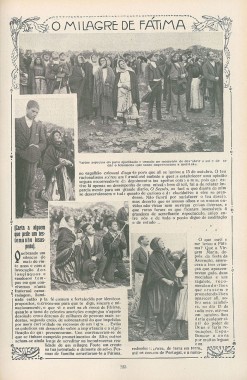How Should I Spiritually Feed My Mind?
Dear Father John, I notice that, as I’ve grown spiritually, I don’t read the same things that I used to do because for one, they don’t seem as interesting, and two, they don’t seem to nourish me spiritually. How should I spiritually feed my mind?
IN OUR POST-CHRISTIAN culture, the spiritual, moral, and intellectual atmosphere that surrounds our daily activities contains anti-Christian values. Our cultural environment is polluted by a worldview that promotes hedonism, secularism, relativism, consumerism, and a host of other toxic perspectives. These can steadily corrode our Christ-centered way of seeing ourselves, others, and the world around us, just as coal dust gradually sickens a miner’s respiratory system.
 In previous eras, popular culture itself was imbued with the Christian worldview, so even popular books and dramas reinforced the Christian value system. But now that is no longer the case. Instead, our minds are flooded every day by messages (advertisements, films, TV shows, news, music) that directly contradict the Christian worldview. That will have its effect on how we think and what we value. In fact, this is one of the reasons the Church is suffering so much from so-called cafeteria Catholicism.
In previous eras, popular culture itself was imbued with the Christian worldview, so even popular books and dramas reinforced the Christian value system. But now that is no longer the case. Instead, our minds are flooded every day by messages (advertisements, films, TV shows, news, music) that directly contradict the Christian worldview. That will have its effect on how we think and what we value. In fact, this is one of the reasons the Church is suffering so much from so-called cafeteria Catholicism.
Cafeteria Catholics get much of their Catholic formation from secular sources (The New York Times, Newsweek), and so they simply can’t understand why the Church would ever suggest alternatives to such popular and seemingly reasonable (from a secular point of view) propositions like artificial contraception, artificial reproduction, and gay marriage.
Because of this ongoing flood of secular ideas, we have to consciously nourish our minds with authentic Christian teaching in order to avoid being poisoned. If we don’t intentionally and intelligently counteract this cultural pollution, we will fall away from healthy spiritual fervor into spiritual mediocrity, which is only a short distance away from habitual, soul-killing rebellion against and abandonment of the one thing needed for our authentic fulfillment now and forever (see Luke 10:42). We have to breathe fresh spiritual air every day if we want to keep our spiritual organism healthy and growing.
Spiritual Reading
 Spiritual reading is one tried and true antidote to cultural pollution. It consists of regularly (daily is best) reading something that explains an aspect of Catholic truth in an attractive, enriching way. Its function is to help reinforce and deepen our Christian view of ourselves and of the world around us. It’s ongoing formation for a Christian mind.
Spiritual reading is one tried and true antidote to cultural pollution. It consists of regularly (daily is best) reading something that explains an aspect of Catholic truth in an attractive, enriching way. Its function is to help reinforce and deepen our Christian view of ourselves and of the world around us. It’s ongoing formation for a Christian mind.
Spiritual reading is either instructive or refreshing. It either informs our minds so that we learn to think and understand more and more in harmony with God’s revelation, or it refreshes what we already know or have learned by making it shine out more clearly once again. In either case, it counteracts the seductive, secularizing messages that saturate our cultural milieu. This is why it’s such an important spiritual discipline. It plants seeds of Christian truth in our mind, and they grow and germinate in our subconscious as we go about our daily business. These seeds often flower during our times of mental prayer. In fact, spiritual reading frequently provides topics, ideas, or insights that are excellent material for Christian meditation.
 How to Do Spiritual Reading
How to Do Spiritual Reading
Spiritual reading differs from regular reading not only in the content, but also in the method. You don’t need to spend a lot of time doing spiritual reading, and you don’t need to read fast. The idea is simply to taste, chew on, and swallow some healthy Catholic concepts every single day.
The distinction between spiritual reading and mental prayer (or meditation) is the end result. The goal of your meditation is to converse with the Lord about what matters to him and what matters to you. The reflection and consideration that forms part of your meditation is meant to spur that conversation in your heart. The goal of spiritual reading is to inform your mind; it doesn’t advance or finish with a prayerful conversation (though that can sometimes pop up spontaneously, which is fine).
Today’s Catholics have at their fingertips an abundance of good material for spiritual reading—old and new books easy to find, old and new articles and websites easy to access. But if you’re not a reader, or if you think you don’t have time, you can get creative. Listening to recordings of spiritual talks, homilies, or conferences (or books on tape, or even good Catholic podcasts) while you drive or exercise can also do the trick.
 An Eye to Entertainment
An Eye to Entertainment
We all need to rest and relax sometimes, and enjoying a good movie, game, novel, show, or trip downtown can often help that happen. Unfortunately, however, this area of human endeavor has also been affected by post-Christian cultural pollution. Pastimes we engage in for necessary rest and relaxation should be both enjoyable and edifying. They should refresh us, but they should also encourage our Christian values—or at least not discourage them.
This doesn’t mean that we should hide away in a Christian bunker somewhere and avoid looking at or listening to anything not explicitly biblical—the Puritan experiment failed in the end, after all, and generations of saints have nourished their minds and hearts on all the great artistic achievements of  the human family, including pagan ones. But it does mean that we need to be smart and intentional about the food we give our imagination and the stimulation we give our emotions. We need to avoid input that could be an occasion of sin for us or for others, and we need to find out what truly helps us get the rest and relaxation necessary to maintain a healthy emotional and physiological profile. Proper rest and entertainment are in the service of our life mission; they are not our goal. Christians don’t live for the weekend; we live for loving Christ and building up his kingdom.
the human family, including pagan ones. But it does mean that we need to be smart and intentional about the food we give our imagination and the stimulation we give our emotions. We need to avoid input that could be an occasion of sin for us or for others, and we need to find out what truly helps us get the rest and relaxation necessary to maintain a healthy emotional and physiological profile. Proper rest and entertainment are in the service of our life mission; they are not our goal. Christians don’t live for the weekend; we live for loving Christ and building up his kingdom.
News and Current Events
A final area of input that can help us show and grow our love for God has to do with staying informed about current issues and events. With the digital news cycle that never ends, we can be tempted to think that we need to know the backstory behind every headline that pops onto our mental screen, from whatever source. Not true. The digital world of information allows us, for the first time in  history, to stay duly informed about the issues and events most relevant to us as Christians. We can choose the sources of our information so that we fill our minds with what we choose to think about, not what a secular producer wants us to think about. And that choice should be made regularly and intentionally with our life’s true purpose in mind.
history, to stay duly informed about the issues and events most relevant to us as Christians. We can choose the sources of our information so that we fill our minds with what we choose to think about, not what a secular producer wants us to think about. And that choice should be made regularly and intentionally with our life’s true purpose in mind.
In short, moving forward along the path of Christian virtue requires paying attention to the map the Lord has given us and avoiding seductive sidetracks. As St. Paul put it:
Finally, brothers, whatever is true, whatever is honorable, whatever is just, whatever is pure, whatever is lovely, whatever is gracious, if there is any excellence and if there is anything worthy of praise, think about these things. (Philippians 4:8, RSV)
Editor’s Note: This is another excerpt from Father John Bartunek’s new book “Seeking First the Kingdom” filled with “practical examples and down-to-earth wisdom which will show you how to bring Christ into each facet of your life”. Click here to learn more about the book…or if you wish to get it for a friend or relative who doesn’t read on line.
Art: Modified Comedy and Tragedy Mask Icon, Booyabazooka, 5 July 2006; CCA-SA; Old book bindings at the Merton College Library, Oxford, England, Tom Murphy VII, 25 August 2005; Modified Comedy and Tragedy Mask Icon, Booyabazooka, 5 July 2006; CCA-SA; Il manoscritto perduto (The Lost Manuscript), Jean Henri De Coene, 19th century, PD-US; A baseball, cropped from Image:Baseball.jpg, Tage Olsin, 24 September 2006, CCA-SA; The Fountain of Youth, Alex Proimos, 22 August 2011, CCA; Newspaper fatima, Anonymous – Ilustração Portuguesa N.º 610, 29 September 1917, page 353, PD; all Wikimedia Commons.


